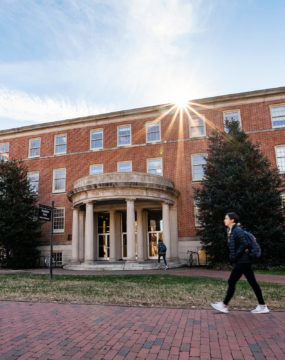Keep up with our latest demographic insights

Last week, we highlighted the programs of study where NC Community College graduates were making the highest average annual wages five years after graduation, as well as the percentage employed who graduated from that program. This week, we’re doing the same thing for UNC system graduates. This data comes from the NC Tower database, maintained by NC Department of Commerce, which provides aggregate information on degree attainment, programs of study, and wage/employment information from public postsecondary institutions in North Carolina. For…
By this Sunday (May 1), most college-bound high school seniors will have made a decision about where they will be this fall. For North Carolina students staying in-state, college-bound students have a choice between 15 campuses. Where do they go? Last year, 30,700 graduating high school seniors reported that they intended to enroll at one of the state’s public 4-year universities. The fall enrollment data for the UNC system indicates that there were 27,443 recent…
Educational attainment is critical to future success. For individuals, “educational attainment is a powerful predictor of well-being.” Higher levels of educational attainment are associated with higher wages, better health, and lower rates of unemployment. For communities and employers, education is vital to ensure a workforce capable of meeting future job requirements. Georgetown’s Center on Education and the Workforce predicts that 67% of North Carolina jobs will require some form of postsecondary education by 2020. Specifically:…
Colleges and universities can exert significant impacts on the demographic and socioeconomic characteristics of community populations. This is often self-evident in “college towns” such as Chapel Hill, where college students make up a large portion of the population. But, as Alemayehu Bishaw notes in a recent report for the U.S. Census Bureau, “even in large cities, a big student population living off-campus can impact [economic] indicators” such as the poverty rate. College students typically live in…
Your support is critical to our mission of measuring, understanding, and predicting population change and its impact. Donate to Carolina Demography today.